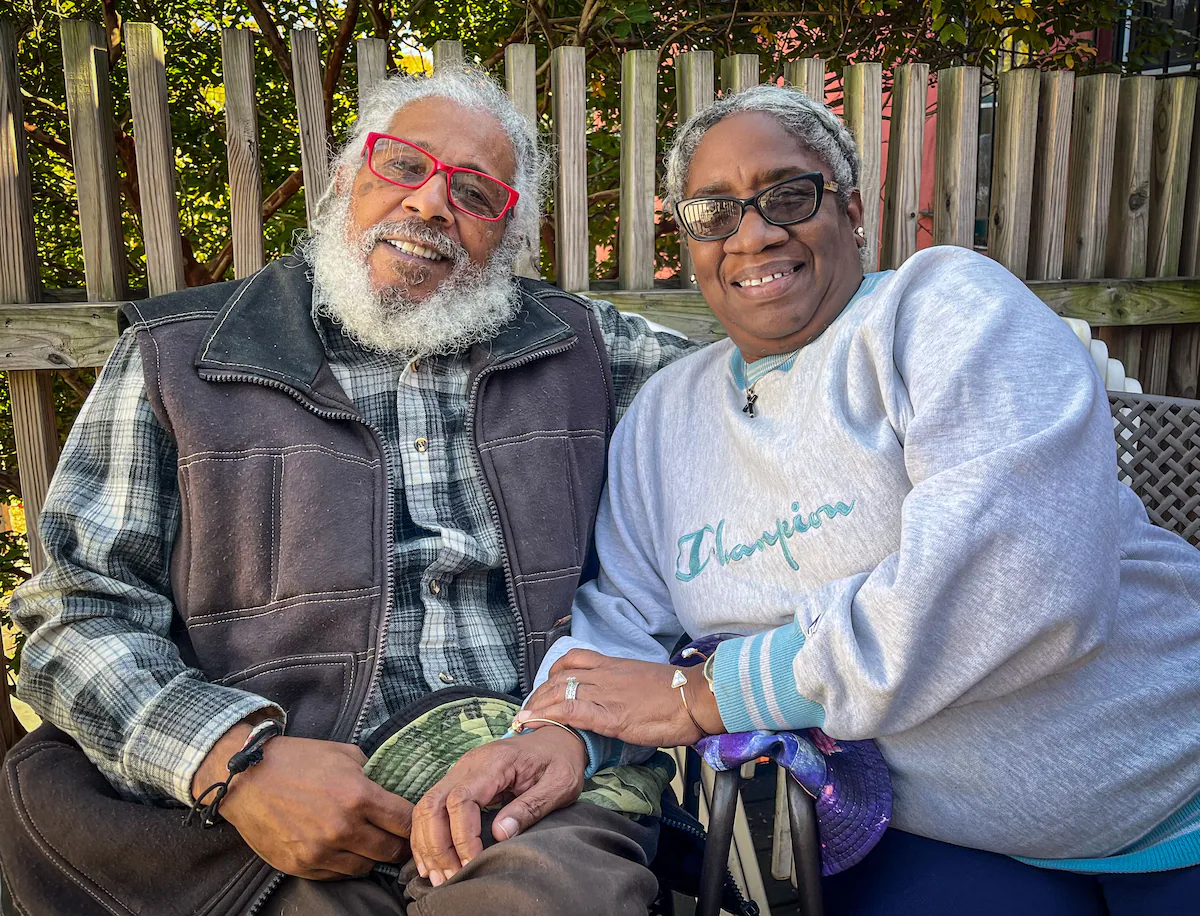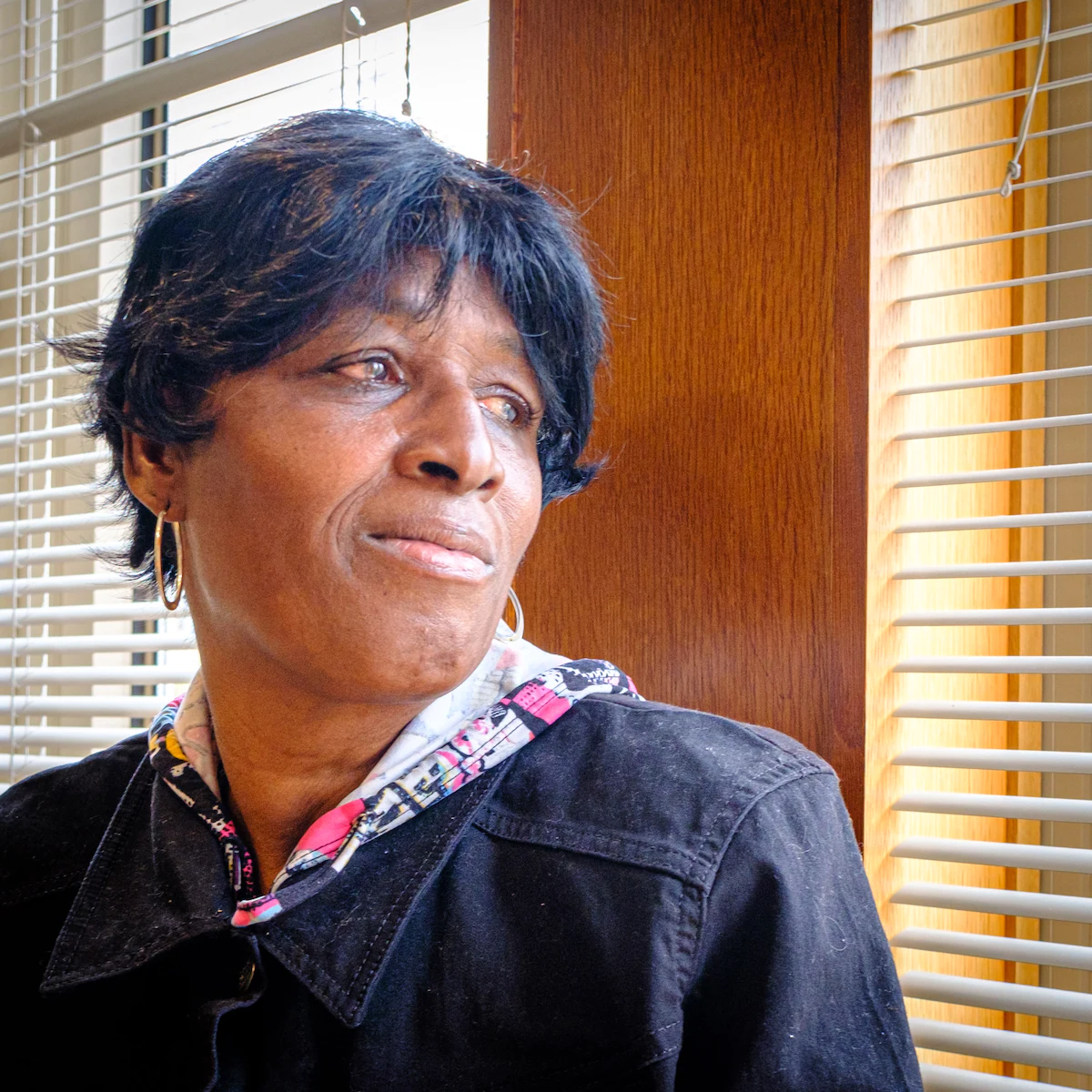Post readers provide a hefty gift in the fight against homelessness
Perspective by John Kelly
Columnist

Air Force veteran (and grower of hot peppers) Robert “Bobby” Gerino found his Frederick, Md., townhouse with the help of Friendship Place, a partner in The Washington Post Helping Hand. (John Kelly/The Washington Post)
I don’t want to be accused of burying the lede — journalese for delaying the actual point of a story — so I’ll come right out with it: Washington Post readers donated more than $260,000 to our most recent Helping Hand fundraising campaign.
Fast, informative and written just for locals. Get The 7 DMV newsletter in your inbox every weekday morning.
When you add that to the $150,000 pledged by the Robert I. Schattner Foundation, that gives us a total of over $410,000 donated to our three nonprofit partners: Bread for the City, Friendship Place and Miriam’s Kitchen.
That is a very nice number. Those funds will be used to help alleviate homelessness in Washington, the core mission at each of those charities.
Just as nice as that number is the collective sentiment behind it. Each donation says we care about our fellow human beings and want to help lift the burdens of those less fortunate than ourselves.
At its most basic, Helping Hand is a fundraiser, the continuation of a long tradition at The Post, begun at the very birth of this column in 1947 when Bill Gold encouraged donations for what was then called Children’s Hospital. But I think it’s something else, too: a way to learn what it’s like to be without a home, a way to be moved by the strength some people muster to help themselves, a way to learn how organizations approach seemingly intractable problems.
I know I’ve learned a lot. The social workers and case managers I’ve met have shown me how intimately they work with their clients, earning their trust over months or years.
I’ve also learned that as much as we’re a nation that loves assembly lines — a country that prizes inventive systems — there isn’t an assembly line that will “solve” homelessness.

Michael Blue and Marnette Chase received medical help through the clinic operated by Bread for the City. (John Kelly/The Washington Post)
I’m reminded of what a 25-year-old named Christian told me. Without a home since he was 17, he sleeps in his car while working at Reagan National Airport. Said Christian: “The system is to put Band-Aids on wounds.”
So how do we change the system? That’s the story that runs parallel to the columns I’ve been writing these past eight weeks. Charities such as our three partners do the tangible, hands-on work — distributing food, running shelters, organizing medical clinics — but they are also interested in changing the system.
It starts with a simple notion. As Jean-Michel Giraud, president and CEO of Friendship Place, put it in an email to me: “To effectively address homelessness in the D.C. area — and the nation — we have to start seeing people who are experiencing homelessness as our neighbors and honor their humanity.”
First humanity, then advocacy. It’s something many charities incorporate into their approach.

A cascade of events caused Sheila White to lose her apartment. She slept in buses and doorways before finding help at Miriam’s Kitchen. (John Kelly/The Washington Post)
Scott Schenkelberg, president and CEO of Miriam’s Kitchen, wrote in an email: “Across the past decade — in addition to our meals, clothing and case management — we began advocacy work to create proven housing solutions to end chronic homelessness in the area. This systems-change work — educating and motiving public officials and D.C. citizens to enact better policies — can only be done through the kind of private, community support that comes through efforts like The Washington Post Helping Hand campaign.”
Foreign visitors to Washington are often surprised by what they see here: tent cities in the shadow of the Capitol dome. George Jones, CEO of Bread for the City, believes we possess the tools needed to end homelessness: money, land and expertise.
“What is lacking is the political will to use those resources to eliminate the barriers we falsely claim prohibit us from solving the problem of homelessness and, more generally, poverty,” Jones wrote in an email. “We have the resources to guarantee that everyone has enough fresh and healthy food to eat, universal access to quality comprehensive health care, safe neighborhoods and modern schools that provide quality education, jobs for everyone who is able to work, and safe, quality housing for those on low or no income, who too often experience homelessness.
“We can become the first country in the history of the world to eliminate poverty. And when we do, we will truly be a more perfect Union.”
We’re not there yet, but we move imperfectly forward.
My sincere thanks to everyone who donated this year to The Washington Post Helping Hand. Thank you to the Robert I. Schattner Foundation for its generous gift. Thank you to the people who work at Miriam’s Kitchen, Friendship Place and Bread for the City. And thank you to the men and women who allowed me to share their stories.
Back soon
I’m going to take some time off. I’ll be back in this space in two weeks or so. Stay warm.






